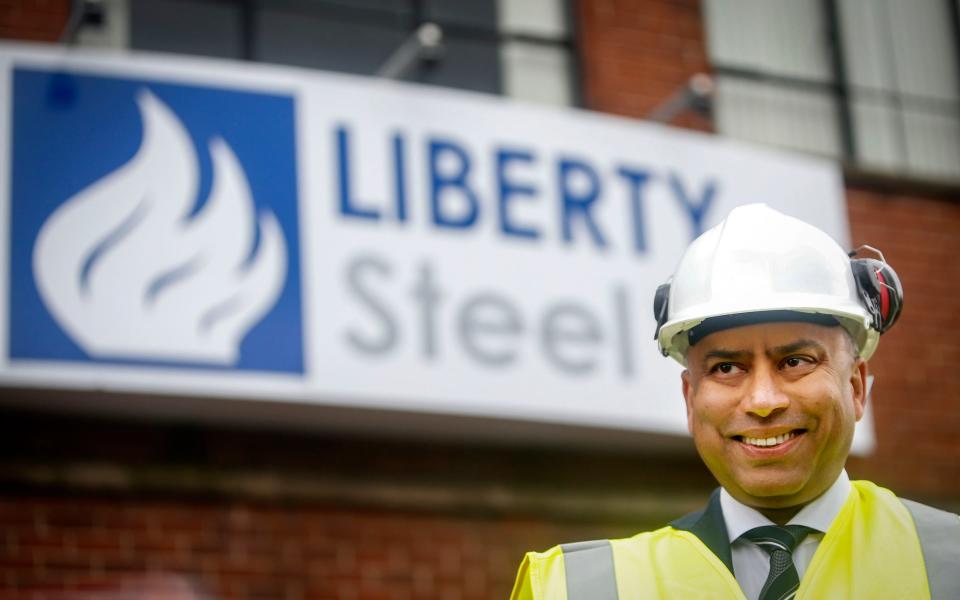Credit Suisse throws doubt on £200m rescue plan for Liberty Steel

Sanjeev Gupta’s hopes of securing a £200m cash injection to keep his struggling Liberty Steel UK businesses alive have been dealt a blow by Credit Suisse, the bank whose fund investors are owed hundreds of millions by Liberty’s owner GFG.
Credit Suisse said it had not been contacted by GFG about a potential bailout from US-based financier White Oak, which would provide working capital to prop up Liberty’s UK steel operations.
The money would be used to get back into full production the businesses centred around Rotherham and Stocksbridge and which employ almost 3,000 people.
Sources said White Oak’s loan was still subject to due diligence, but a major concern was securing Credit Suisse’s backing.
However, after news of the possible bailout emerged on Thursday, the Swiss bank said it had no knowledge of the plan.
“Neither GFG nor any of its companies have informed us of any finance proposal or shared any information with us,” Credit Suisse said.
“We want a constructive solution and would like nothing better than a credible financial restructuring plan which offers a viable solution for the UK steel industry and keeps steelworkers in their jobs. We have asked for that repeatedly and nothing has been forthcoming.”
The bank, which said it is owed $1.2bn (£860m) by GFG, is understood to be concerned its seniority as a creditor could be pushed down the ranking if the fresh funding is agreed and then ring-fenced in the event that despite the cash injection Liberty does not survive.
It added: “Credit Suisse has a fiduciary obligation to its investors and cannot consent to any solution that is not fair for them. A credible and realistic financial restructuring plan from GFG would be good for investors and good for the UK steel industry.”
GFG was provided with billions of loans by supply chain financing business Greensill Capital, which collapsed into administration in March over concerns about the concentration of funding to Mr Gupta’s businesses.
Since Greensill’s implosion, GFG’s businesses have been racing to find new financing as they battle a cash crunch and the downturn caused by the pandemic.
Credit Suisse has pushed for the launch of winding up petitions for some GFG businesses in a bid to recoup investor funds which went to GFG via Greensill.
Sources close to Liberty indicated the loan from White Oak is seen as one of the best ways of ensuring the steel businesses survive and are viable.
Mr Gupta has previously said that creditors trying to wind up Liberty’s operations were harming themselves and reducing the chances of getting their money back.
In March Business Secretary Kwasi Kwarteng refused a request by Liberty for a £170m state-backed bailout, with the minister concerned about what he later described as the GFG’s “opaque” structure and fears taxpayer funds could end up in Mr Gupta’s overseas, rather than British businesses.
The development came as Greensill administrator Grant Thornton said creditors to the failed company’s UK division are likely to lose all but 20pc of their claims.
The audit firm said it expects to pay out $275m of the almost $1.5bn in claims to unsecured lenders, who include trade insurers such as Tokio Marine, Chubb, Swiss Re and Zurich Insurance.
GFG declined to comment.
Separately, Mr Gupta has put two steel factories in France up for sale after a bid to refinance the plants failed, the Financial Times reported. GFG has appointed Rothschild to sell the two plants in Ascoval and Hayange, according to unnamed sources.

 Yahoo Finance
Yahoo Finance 